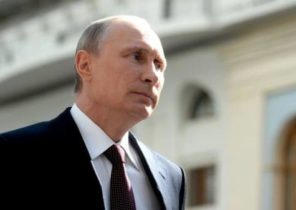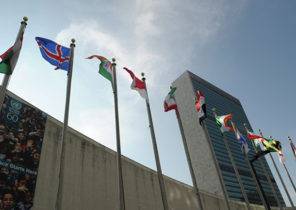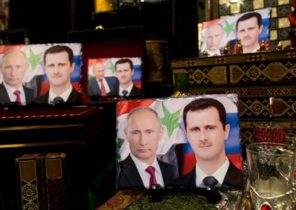Cyril and Methodius could not create the Slavic alphabet, as a single Slavic language. The imposition of a thesis of the Slavs — a product of the Soviet pressure. Unfortunately, there are still some Bulgarian scholars working in old Bulgarian (in Russian tradition it is called old Church Slavonic — approx. TRANS.) language, to use the term.
This was announced by BNT Professor Kiril Topalov — writer, playwright, screenwriter, literary critic, translator and diplomat, and a former Director of the National library.
“Cyril and Methodius created the Glagolitic alphabet based on old Bulgarian language, and I can even say more precisely — on the basis of dialect of Thessalonica,” explained Topalov and quoted a passage from the lives of Cyril and the appeal of the Byzantine Emperor Michael, in which he gave the order to Cyril and Methodius.
He called unacceptable falsification scandal around Bulgarian contributions to Slavic culture and history, as well as another provocation — an exhibition in the Russian cultural and information center. It the Holy brothers Cyril and Methodius are represented as reformers of the Slavic alphabet, the creators of the Church Slavonic language, the first disseminators of literacy and education in Russia.
“What do you mean “reformed the Cyrillic alphabet”?— asked Topalov and explains that it is impossible to reform something that was not — Cyril and Methodius created the Glagolitic alphabet, the Cyrillic alphabet was created later.”
Topalov also remembered the provocations that happened a few years ago, when Vladimir Putin stated that the alphabet came from Macedonian lands. “It’s not a coincidence. Need revenge of Bulgaria and to show her that she is in the wrong direction,” explained Topalov.
He insists that the may 24 — celebration of Bulgarian alphabet, literature and culture, which formed the basis of other Slavic cultures, but to call this day a celebration of Slavic literature, Slavic culture, etc. is absolutely wrong simply because no Slavic literature.
“There are two waves of the South Slavic influence on Russia, and Russia was baptized Bulgarian liturgical books. Only in XV-XVI centuries, after the second wave of the South Slavic influence, Russia has influenced the style of the Tarnovo literary school. But what about the South Slavic influence, we say, ‘ asked Cyril Topalov. — About Serbian? About Macedonian? Isn’t that about the Bulgarian?”
The exhibition “Source of Slavic culture”, organized on the eve of the may 24, caused outrage leading historians and philologists of Bulgaria.
A year ago the Russian cultural information center in Sofia caused a scandal with an exhibition on may 9, which was planned to be called “75 years since the liberation of Eastern Europe from Nazism”. Then the Bulgarian foreign Ministry has advised the Russian side to abandon this name, because this event supports “the dubious historical thesis” and represents “interference in the internal political debate in Bulgaria”.







